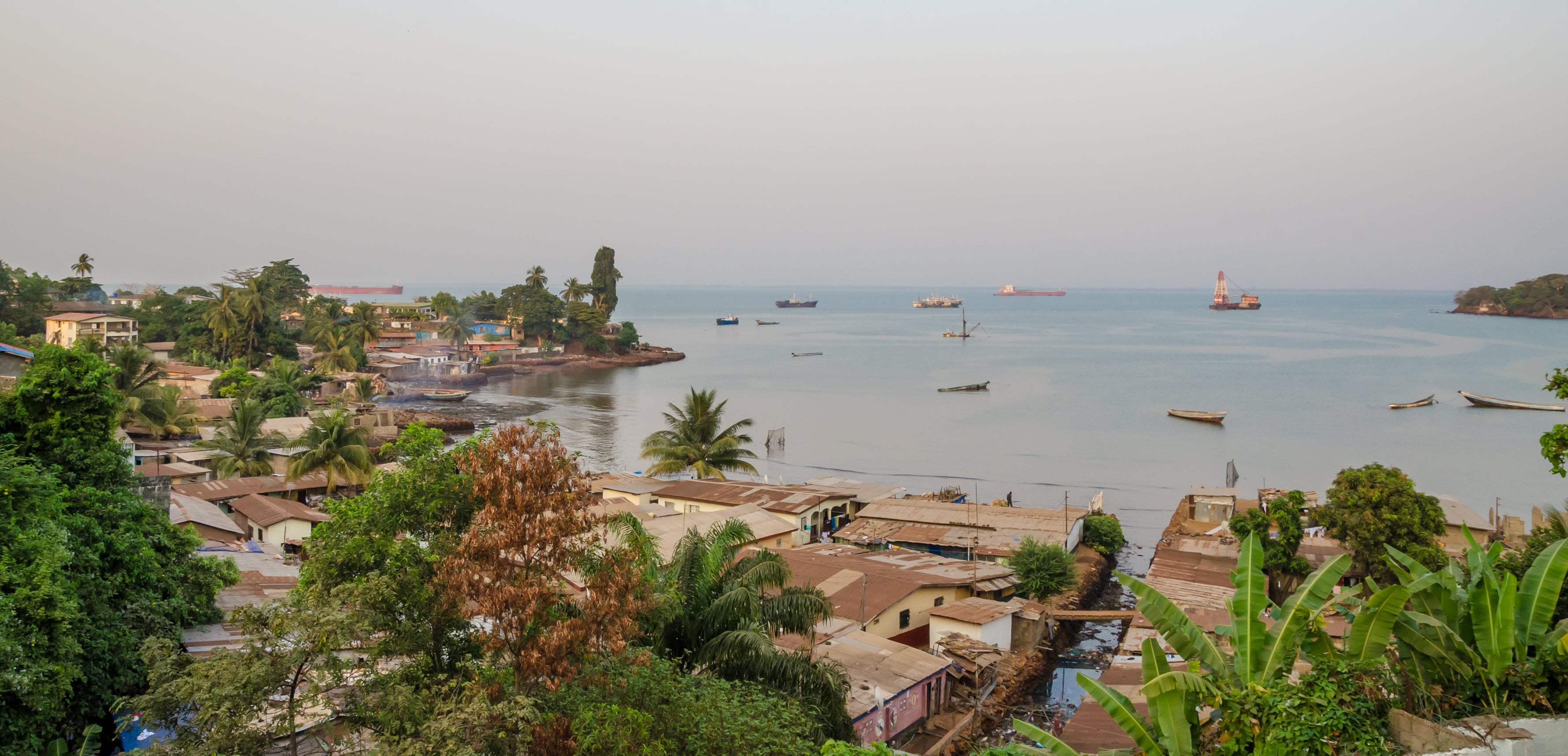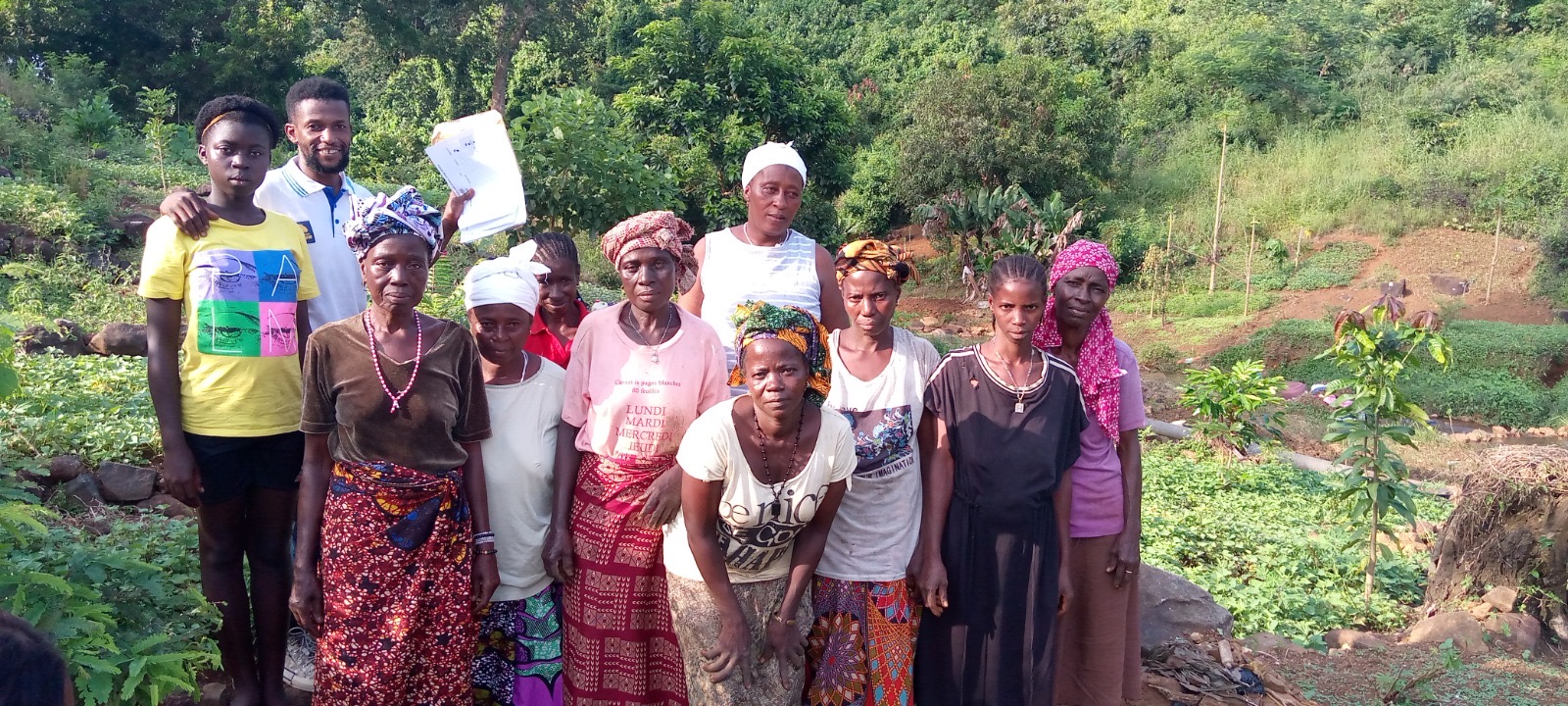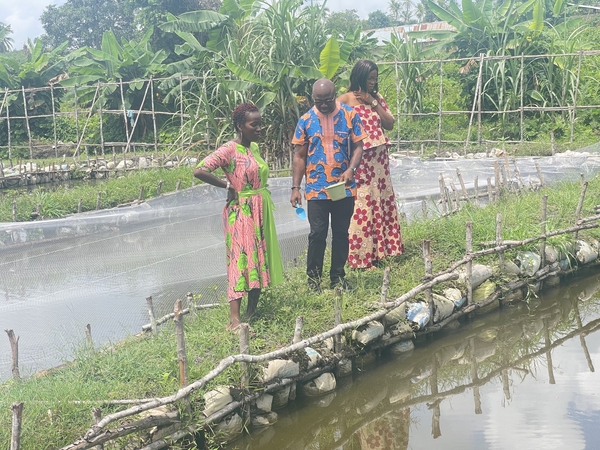- Who We Are
- How We Work
- Regional / Country Initiatives
- Legacy
- Core Themes
- Working Groups
- Portfolio & Results
- Newsroom
- Resources
Sierra Leone: Integrating Climate Change Adaptation in Informal Settlements

Project Overview
With a population of 7.1 million, Sierra Leone faces significant challenges exacerbated by rapid urbanisation, limited resources, and vulnerabilities to climate change. Urban areas like Freetown, Bo, and Makeni struggle to cope with the influx of people seeking economic opportunities, leading to growing poverty, inequality, and climate change vulnerability. The Covid-19 pandemic further strained Sierra Leone's already fragile systems, exacerbating poverty, food insecurity, and health risks.
This project aims to rebuild and strengthen communities' resilience to vulnerabilities and climate change. The objective is to reactivate and integrate community capacities to recover from existing vulnerabilities and bolster climate change adaptation mechanisms. By empowering communities, strengthening partnerships, and leveraging existing resources, the project strives to create lasting impacts and contribute to the long-term development and resilience of urban areas. The project is implemented by the Federation of Urban and Rural Poor (FEDURP) and the Centre of Dialogue on Human Settlement and Poverty Alleviation (CODOSHAPA).
This project is part of the Building Resilience in Informal Settlements Programme, a partnership between Cities Alliance and Slum Dwellers International (SDI), funded by the Swedish International Development Cooperation Agency (Sida), to support civil society organisations working in informal settlements.

Project Results: 2022-2024
Profiling of 3 cities and 10 settlements gathered data on community profiles, social networks, and service levels. Meanwhile, climate risk assessments in three cities identified risks, impacts, and mitigation strategies. Upgrading efforts helped 412 households improve their water and sanitation and 240 households to gain access to improved energy sources. 67 people enhanced their skills, addressing climate change and conserving biodiversity, while 367 people are better adapted to climate change now.
To address youth issues like drug abuse, gender-based violence, unemployment, and crime, peer-to-peer engagements were facilitated in eight communities, supported by radio and TV broadcasts. Additionally, intercity learning exchanges, organised with CODOHSAPA and FEDURP-SL, empowered youth, enhanced skills, and fostered mentorship and leadership. In total, 26 learning exchanges with 150 people took place.
Further contributions to practitioner briefs, such as "Savings for Resilience (S4R)" and "The Value of International Knowledge Exchange: Mwanza City Experience," advanced the discourse on community resilience. A workshop on "Breaking Barriers and Improving Access to Financial Services for Women in Informal Settlements" also addressed financial inclusion barriers for women and girls.
Through the Community Learning Platform (CoLP), savings groups were strengthened, and engagement with city authorities was facilitated. In parallel, community mobilisation efforts identified active and inactive savings groups, enabling inclusive participation and development. 31 savings groups with 969 savers and 73 youth members were supported. These groups received financial literacy training, while the federation supported urban farming with training, planting materials, and tools for oyster and fish farmers.
Advocacy was strengthened through 54 settlement-level campaigns and forums, 3 city and national campaigns and 25 youth-led initiatives. 5 federation leadership meetings helped enhance social coherence and assisted in federation building.

Strengthened Collaboration Between Slum Dwellers and Government in Sierra Leone
Through sustained engagement by the federation, the government has shifted from forced evictions to a participatory approach for slum upgrading. As a result, five informal settlements are on the verge of being declared special planning areas, enabling the creation of Area Action Plans. These are detailed land-use plans outlining public and private land use, infrastructure development and utility services within each settlement. They align with the Local and Structure Plans and provide guidelines for issuing development and building permits. Communities have also been able to support the development of Climate Adaptation Plans.
This collaborative approach enhances access to basic services, housing and livelihoods for slum residents, while fostering better governance and social accountability. The participatory planning methodology ensures that any necessary relocation is handled according to international best practices, reducing vulnerabilities and promoting long-term community resilience.
Key Achievements: 2022-2024
- 31 savings groups and 969 savers supported
- 73 youth members mobilised and supported
- 412 households with improved water and sanitation
- 240 households with improved access to energy
- 67 people supported through networking and training to address climate change or to conserve biodiversity
- 367 people supported to better adapt to the effects of climate change
- 3 cities and 10 settlements profiled
- 54 settlement level information forums or campaigns
- 3 city or national level advocacy campaigns conducted
- 25 content creating initiatives involving youth
- 5 regional or national level federation leadership meetings were held
- 26 peer-to-peer learning exchanges with 150 individuals
